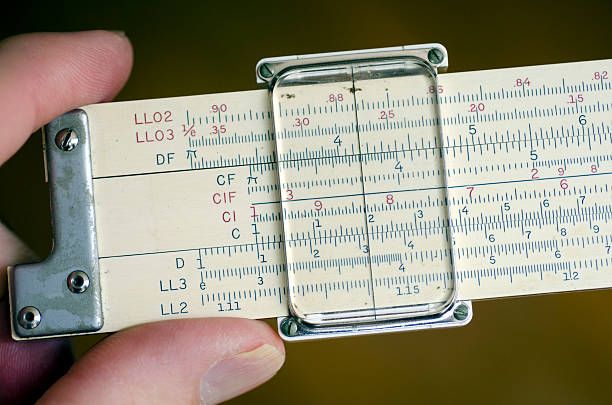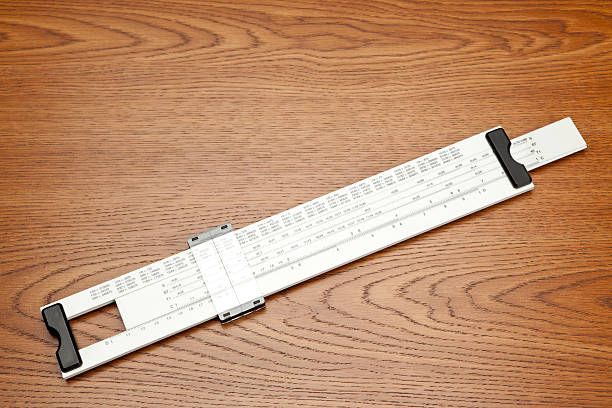Skip to comments.
Math disaster in college: Would-be STEM majors can't add 1/2 + 1/3
Joanne Jacobs ^
| Sep 6, 2023
| Joanne Jacobs
Posted on 10/07/2023 3:40:59 AM PDT by george76
After a year of remote algebra, Diego Fonseca struggled with advanced algebra. Despite a week at George Mason University's Math Boot Camp, the would-be computer science major failed the math placement test to qualify for calculus four times. He didn't know the basics.
Across the country, more students are placing into pre-college math, reports AP's Collin Binkley. "At many universities, engineering and biology majors are struggling to grasp fractions and exponents."
At George Mason in Northern Virginia, fewer would-be STEM majors are getting into calculus and more are failing, he writes.
“We’re talking about college-level pre-calculus and calculus classes, and students cannot even add one-half and one-third,” said Maria Emelianenko, chair of George Mason’s math department.
At Temple, the number of students placed into intermediate algebra, the equivalent of ninth-grade math, has nearly doubled, writes Binkley. It's the lowest option for STEM majors.
In a softball quiz at the start of last year's fall semester, students were asked to subtract eight from negative six, recalls Jessica Babcock. “I graded a whole bunch of papers in a row. No two papers had the same answer, and none of them were correct.”
“It’s not just that they’re unprepared, they’re almost damaged,” said Brian Rider, Temple’s math chair. “I hate to use that term, but they’re so behind.”
Professors tried "expanded office hours, a new tutoring center, pared-down lessons focused on the essentials," writes Binkley. "But students didn’t come for help, and they kept getting D’s and F’s."
This year, Babcock hopes redesigning the algebra class to focus on "active learning" will help. "Class will be more of a group discussion, with lots of problems worked in-class."
George Mason also is offering active learning, and the option to take a slower-paced math class that takes two terms instead of one.
Fonseca failed the placement test four times, again placing in pre-calculus. He'd need at least one extra semester to catch up on math. He decided to start at community college instead. Using what he'd learned in boot camp, he placed into calculus.
TOPICS: Culture/Society; News/Current Events; US: Maryland; US: Virginia
KEYWORDS: algebra; brooklyncollege; calculus; college; homeschooling; laurierubel; math; mathdisaster; mathematics; newyork; newyorkcity; stem; stemmajors; university
Navigation: use the links below to view more comments.
first previous 1-20, 21-40, 41-60, 61-80 ... 161-162 next last
To: george76
Class will be more of a group discussion,
Its math and you tell them its done THIS way...not a group discussion.
21
posted on
10/07/2023 4:06:02 AM PDT
by
Adder
(End fascism...defeat all Democrats.)
To: george76
I had to think on it for a minute then remembered “the lowest common denominator.”
22
posted on
10/07/2023 4:08:43 AM PDT
by
Mustard
(tt)
To: CFW
It’s all about finding the lowest common denominator, which is ironically what they are brining the students down to.
23
posted on
10/07/2023 4:10:07 AM PDT
by
Rennes Templar
(Come back, President Trump.)
To: jeffc
It was really useful when we divided the pizza...the 13 yr old got 1/2, the 9 year old got 1/3...and mom got what was left....which is why mom is underweight.
To: george76
25
posted on
10/07/2023 4:12:02 AM PDT
by
RoosterRedux
(A person who seeks the truth with a strong bias will never find it. He will only confirm his bias.)
To: mewzilla
not calculus (thank God), on a daily basis Don't be so hard on yourself, knowing what'll fit in your trunk, refrigerator, or what not, is a subjective form of multi-variable calculus.
And knowing about how close you can have something on your stove to the hot spot without catching fire would be a form of partial differential equations.
So now you can tell people you are a math genius!
26
posted on
10/07/2023 4:12:42 AM PDT
by
fruser1
To: jeffc
Does 5/6 mean somewhere between 5 and 6? I converted it to kilopounds and got 0.8333333.
27
posted on
10/07/2023 4:13:50 AM PDT
by
WinMod70
To: RoosterRedux
28
posted on
10/07/2023 4:18:48 AM PDT
by
MayflowerMadam
("Normal" is never coming back.)
To: fruser1
LOL! If so, it’s only thanks to my hubby. I’ve always had a problem with anything other than basic math. Algebra and trig gave me fits. I took calc in college and if it hadn’t been for hubby, then my fiance, If have never gotten through it.
But I use math on a daily basis.
If young’uns were persuaded that being able to do math would truly makes their lives better in all kinds of ways, and it does, then even if their publik skrewl teachers suck, kids might find someone else to help them learn it.
29
posted on
10/07/2023 4:20:15 AM PDT
by
mewzilla
(Never give up; never surrender!)
To: Tom Tetroxide
“Creative math” is not math at all, it is more like learning a sorcerer’s handwritten manual by rote, and is useless in the real world.
There was a reason elementary and secondary students were forbidden the use of calculators in tests by the instructors. They get lazy and never understand the underlying concepts that lie at the base of all computations.
Now, you want a challenge, teach them the use of an old-fashioned slide rule. With trig functions, log, and a log log scale. All analog, no digital at all.
30
posted on
10/07/2023 4:23:44 AM PDT
by
alloysteel
(Be kind to your web-footed friends. That duck may be somebody's mother.)
To: george76
The first thing when adding fractions is to find the common denominator.
Fractional math used to be taught in elementary school.
Most “college” students don’t know what a common denominator is. That’s the problem right there.
31
posted on
10/07/2023 4:26:43 AM PDT
by
Flavious_Maximus
(Tony Fauci will be put on death row and die of COVID!)
To: MayflowerMadam
It is so much fun. And very good for old folks, for fun and to exercise that big muscle between your ears.
Here's the place to start for math.
khanacademy.org/math
Sal Khan, who learned math at MIT, posted a few videos on youtube to help his nieces who were struggling with math...and they caught on with others interested in math.
As Sal says, everyone is good at math...they just need a good teacher to bring out their math genius.
And he is a very good teacher.
32
posted on
10/07/2023 4:27:30 AM PDT
by
RoosterRedux
(A person who seeks the truth with a strong bias will never find it. He will only confirm his bias.)
To: jeffc
To: Flavious_Maximus
The other thing they don’t know is the sequencing... (My Dear Aunt Sally...)
To: george76
I feel a racist slant coming on...
If any of these STEM programs were 80% Asian and 20% Jewish, they would not be part of this discussion.
In the course of my long and unillustrious life, practically every successful math student got there in spite of their school classes, and that includes private schools.
35
posted on
10/07/2023 4:33:10 AM PDT
by
chajin
("There is no other name under heaven given among people by which we must be saved." Acts 4:12)
To: george76
“After a year of remote algebra...”
One year of remote algebra does not explain why kids don’t understand basic arithmetic.
The education bureaucracy is trying to use the Wuhan lockdowns as cover for what they have inflicted on public schools for several decades.
Next, they will need more money to fix the problem.
To: Flavious_Maximus; george76
Take away the calculators...
Fractional math used to be taught in elementary school. I went to grade school from 1962-70. HS 1970-74
No calculators in GS. They weren't around. We learned math the old fashion way. Pencil, paper and scrunching up forehead.
No calculators in HS. They were just coming around and really expensive. We used slide rules.
This is what a slide rule looked like, for the youngsters;


37
posted on
10/07/2023 4:41:25 AM PDT
by
Bounced2X
(Boomer - I survived childhood with no bike helmet.)
To: Ikeon
i tought it be like 1 or sumfin cause one halfs plus some other part be like around one if i be estamatin
38
posted on
10/07/2023 4:42:51 AM PDT
by
CodeToad
(Arm Up! They Have!)
To: oldasrocks
You are correct you old fogey...but I use that term with awe and respect for your mastery! LOL!
Roger your sarcasm about the new math!
39
posted on
10/07/2023 4:50:18 AM PDT
by
mdmathis6
(A horrible historic indictment: Biden Democrats plunging the world into war to hide their crimes!)
To: alloysteel
Teaching the old ways of computation even including the abacus would be great! It would give them a sense of history.
Navigation: use the links below to view more comments.
first previous 1-20, 21-40, 41-60, 61-80 ... 161-162 next last
Disclaimer:
Opinions posted on Free Republic are those of the individual
posters and do not necessarily represent the opinion of Free Republic or its
management. All materials posted herein are protected by copyright law and the
exemption for fair use of copyrighted works.
FreeRepublic.com is powered by software copyright 2000-2008 John Robinson